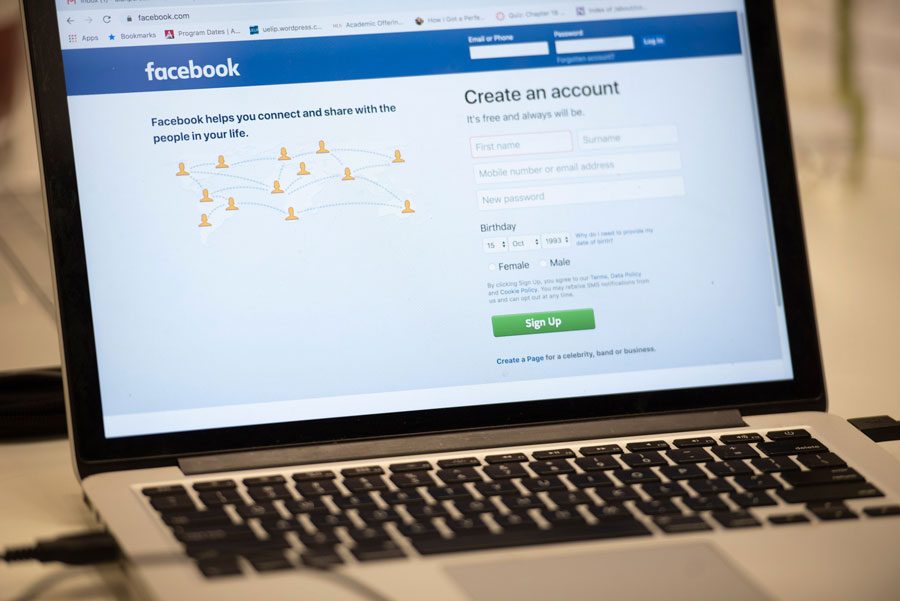Huang: Social media continues to limit us
Colin Boyle / Daily Senior Staffer
Social media continues to limit us, writes columnist Alexandra Huang.
April 14, 2019
Social media has made the concept of friendship ever more confusing. Sure, 560 people follow me on Instagram. Sure, I have 700 friends on WeChat. But how many of them do I actually care about, and how many of them do I actually talk to? I would say around 25.
It’s easy for social media to give us the false idea that we have a ton of friends, while the reality is often that we can only keep a dozen deep connections in our life simply because we all have a limited amount of time and energy. Each post we share is a potential pitfall for people to believe that based on the images we put out, their experiences, their friends and their lives are subpar to everyone else’s.
Scrolling down friend’s posts and stories, you’re supposed to get updates on different people’s lives and feel “connected.” But in reality, social media may not always bring us closer together, and pictures and brief phrases aren’t enough to give me insight into other people’s lives.
Social media — like many other consumer-based things in life — thrives off of a short-term memory culture. It’s the epitome of instant gratification: it takes one second to like a post, to write a comment, to post a story. It takes one second to take a selfie on Snapchat and another second for it to go away. Nothing lasts, and nothing is remembered after a couple of hours.
It also minimizes reality by taking vibrant experiences — ones with sight, hearing, taste, feel and smell — and makes them into something flat and single-faceted. Social media sells itself on the ability for us to transmit, imitate and send an experience to anywhere around the world; but what people see is not nearly as complete as the real experience.
For example, when I am in a restaurant eating a plate of hot curry rice topped with crispy fried chicken, I am delighted and my heart jumps with joy. But my viewers can’t fully understand my experience: they won’t know the food is delicious to me because I was super hungry before going to the restaurant, or that I was missing my Asian roots and the food of my culture. It’s the combination of all my emotions, memories and the food itself that gives me my experience. Very little of this can be translated by someone sitting in front of their phone scrolling down a list of 100 photos; they might think the food looks delicious, but they won’t be able to fully engage with such an experience the way I do.
What is emotional and experiential for me gets turned into a cheap form of entertainment for someone else; something they will forget before they even put their phone down.
I do not want to deny social media as a whole. Just like any other tool, it’s double-edged. We can either use it to our advantage or to our disadvantage. For example, individual artists have taken great advantage of social media to bring their music to the world. Small businesses have also mastered the art of aesthetic marketing on platforms like Instagram through which they create an artistic layout to attract customers, especially young millennials with a detailed taste for design.
My point, however, is that before we scroll through our screens, we should first be clear about our purpose and whether social media is benefiting us on a personal level.
We should have the power to control our tools, not the other way around.
Yujia Huang is a Weinberg junior. She can be contacted at yujia@u.northwestern.edu. If you would like to respond publicly to this op-ed, send a Letter to the Editor to [email protected]. The views expressed in this piece do not necessarily reflect the views of all staff members of The Daily Northwestern.


